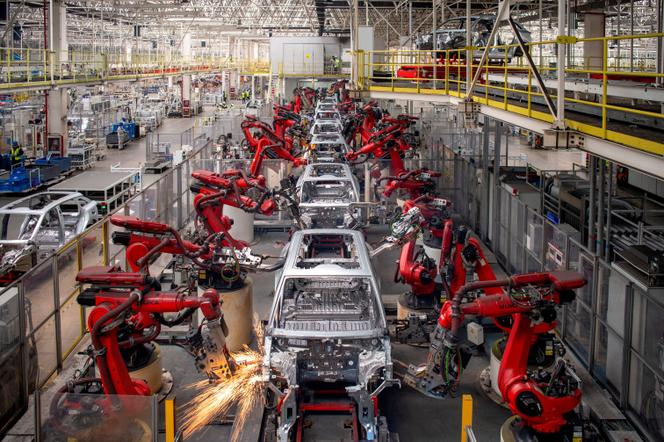


Long criticized for its naiveté when it comes to free trade, the European Union (EU) is finally rebelling. On Wednesday, June 12, the Brussels Commission said it was ready to impose a sharp increase in customs duties on imports of electric vehicles manufactured in China. In the wake of the European elections, and in the face of public opinion calling for greater protection, this decision breaks with the passivity of which the EU has been criticized in its approach to globalization.
This turning point is the fruit of several months' of studies, which has highlighted the massive public subsidies from which Chinese manufacturers benefit to be able to produce at costs defying all competition. According to Brussels, the subsidies granted by the Chinese government are creating substantial distortions, which the EU intends to offset as of July with taxes of up to 48%, compared with 10% today.
The study is useful in more ways than one. Firstly, it deconstructs the narrative that Beijing is trying to impose, according to which China respects the rules of the World Trade Organization (WTO), unlike the US, which has openly decided to disregard them, not only by paralyzing its operations but also by flouting its principles with the Inflation Reduction Act (IRA), a vast program of public subsidies.
The Commission has demonstrated that, even if one might have suspected it, China is in no way the model WTO member it claims to be. From mining to the construction of assembly plants, via the financing facilities granted throughout the industrial process, state subsidies are present at every stage. Restoring a level playing field is not protectionism.
The introduction of taxes on electric vehicle imports also sends a clear signal to Beijing. Weighed down by the real estate crisis and weak demand, China has in recent months stepped up industrial investment aimed at exports to offset the slowdown in growth. This trend risks triggering a crisis of overproduction, which in turn threatens the global macroeconomic balance. The rest of the world cannot remain passive.
Other countries, such as the US, Turkey, India and Brazil, have already decided unilaterally to impose tariffs on electric vehicle exports from China. Beijing has cried foul, forgetting to point out that the Chinese market has itself been subject to discriminatory regulations such as the impossibility for a foreign manufacturer to control a local manufacturer.
Even if the EU has taken the precaution of arguing its criticisms and calibrating taxes according to the level of subsidies granted and Chinese manufacturers' cooperation in the investigation, it is now exposed to retaliatory measures. For the 27 member states, this is a moment of truth, as everyone has diverging interests. Germany, which is extremely dependent on trade with China – and also Sweden and Hungary, which already welcome Chinese manufacturers – does not want to fall out with Beijing.
Member states have until July 15 to decide. Despite the potential collateral effects of these taxes, it is vital that the 27 member states stick together. The credibility of the European Commission is at stake, as are the continent's industrial interests and jobs.
Translation of an original article published in French on lemonde.fr; the publisher may only be liable for the French version.
